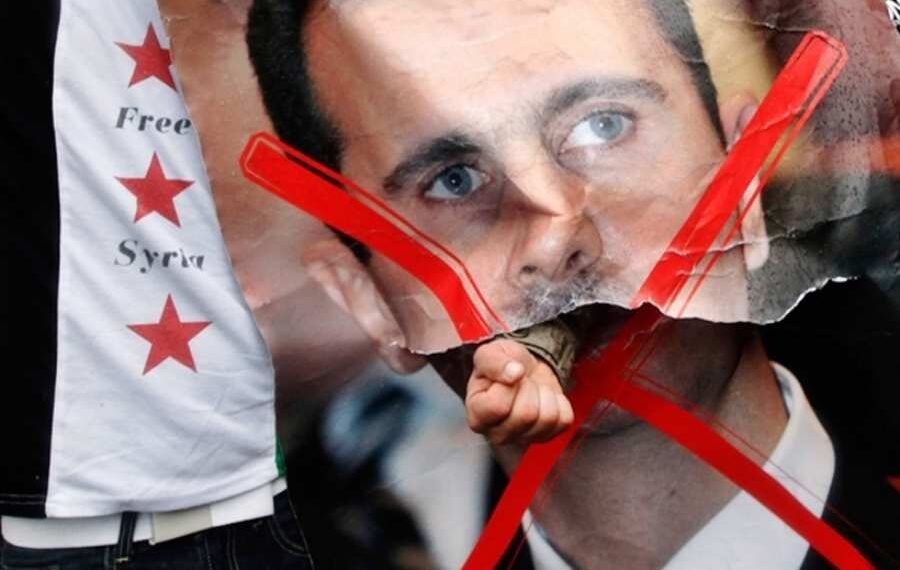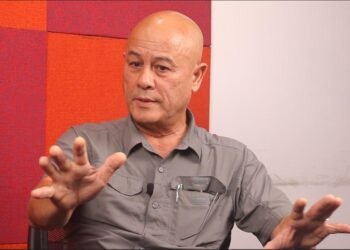Bashar al-Assad’s departure has triggered jubilation across Damascus but raised critical questions about Syria’s future. With rebel factions claiming victory and global powers urging restraint, the fractured nation faces both opportunities for peace and challenges of unity in its post-Assad era.
BY PC Bureau
The Russian Foreign Ministry confirmed on Sunday that Syrian President Bashar al-Assad had stepped down and left the country, signaling the end of his controversial regime after over two decades in power. In a carefully worded statement, Moscow announced that Assad’s departure followed negotiations with key participants in the Syrian conflict, though Russia itself played no role in brokering the agreement.
“As a result of negotiations between B. Assad and a number of participants in the armed conflict on the territory of the Syrian Arab Republic, he decided to resign from the presidency and left the country, giving instructions for a peaceful transfer of power,” the ministry said.
While Russia refrained from revealing Assad’s current location, it emphasized the importance of avoiding further bloodshed. “We urge all parties involved to refrain from the use of violence and to resolve all issues of governance through political means,” the ministry added. In a sign of caution, Russia placed its military bases in Syria on high alert, though it downplayed any immediate threats to its personnel or assets.
The news of Assad’s exit has reverberated across the globe, drawing a mix of cautious optimism, concern, and outright jubilation.
United States and Western Allies Respond
The United States welcomed Assad’s resignation as a pivotal moment for Syria. President-elect Donald Trump posted on his Truth Social platform: “Assad is gone. His protector, Russia, was no longer interested in protecting him.” Outgoing Secretary of State Antony Blinken called for a swift political resolution in collaboration with international stakeholders, including Turkey.
In Europe, leaders urged a careful approach to Syria’s transitional period. French President Emmanuel Macron called the development “a significant opportunity for peace” but stressed the importance of avoiding a power vacuum that could lead to further instability. The European Union echoed these sentiments, offering to assist in the reconstruction and reconciliation process under a unified Syrian leadership.
Regional Players Express Mixed Reactions
Iran, a long-time ally of Assad, expressed concern over the potential implications for its influence in Syria. Tehran’s foreign ministry issued a statement saying it hoped the transition would uphold Syria’s sovereignty and maintain regional stability.
Turkey, which has supported opposition factions throughout the conflict, celebrated Assad’s departure. President Recep Tayyip Erdoğan described it as a “victory for the Syrian people” and vowed to support efforts for a democratic transition.
Meanwhile, rebel leaders in Damascus declared the city “liberated” and called for unity among opposition factions to rebuild the nation. Jubilation erupted in the streets of the Syrian capital as residents cheered the end of Assad’s rule, tearing down statues of the Assad family and chanting slogans of freedom.
Challenges Ahead
Despite the widespread celebrations, Syria faces a daunting path forward. Rebel forces remain divided, and the Islamist Hayat Tahrir al-Sham (HTS) group, which played a critical role in the uprising, has declared its intention to govern territories it controls. HTS leader Abu Mohammed al-Jolani, who recently stepped into the public eye, called Assad’s departure “a historic victory” but emphasized the need for a new political system rooted in Islamic principles.
The humanitarian crisis also looms large. The United Nations reported that more than 370,000 people have been displaced in recent weeks due to escalating violence. International aid organizations have called for immediate action to address the worsening conditions on the ground.
The End of an Era
Assad’s resignation marks the culmination of a conflict that has reshaped Syria and the broader Middle East over the past 13 years. While his departure signals the end of an era of Baathist rule, it leaves behind a fractured nation grappling with deep scars and an uncertain future.
As global powers navigate their roles in Syria’s next chapter, the focus shifts to whether the war-torn country can emerge from its darkest days into a period of lasting peace and reconstruction.













